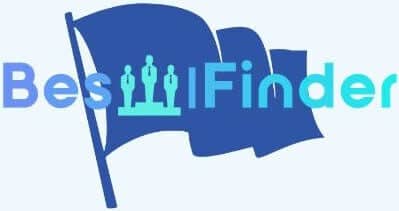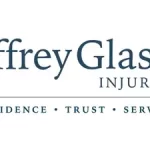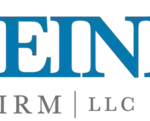Missouri reverse mortgage, as in other parts of the United States, is a financial product available to homeowners who are 62 years of age or older. It allows them to convert part of the equity in their home into cash without having to sell the house, give up the title, or take on new monthly mortgage payments. It’s crucial for those considering a reverse mortgage to understand all aspects of the loan, including the long-term financial implications and potential impact on their estate and heirs.
In this article, we will examine what a reverse mortgage is, eligibility requirements for a Missouri reverse mortgage, types of Missouri reverse mortgage, pros and cons of Missouri reverse mortgage, navigating the application process for a Missouri reverse mortgage, understanding repayment options for Missouri reverse mortgage, Missouri reverse mortgage loan disbursement options, comparison with Home Equity Loans and HELOCs, finding the right Missouri reverse mortgage provider, and finally the top firms that provide the Missouri reverse mortgage.
- What is a Reverse Mortgage?
- Eligibility Requirements for a Missouri Reverse Mortgage
- Types of Missouri Reverse Mortgage
- Pros and Cons of Missouri Reverse Mortgage
- Navigating the Application Process for a Missouri Reverse Mortgage
- Understanding Repayment Options for Missouri Reverse Mortgage
- Missouri Reverse Mortgage Loan Disbursement Options
- Comparison with Home Equity Loans and HELOCs
- Finding the Right Missouri Reverse Mortgage Provider
- Top Companies Missouri Reverse Mortgage
- Conclusion
- Missouri Reverse Mortgage FAQ
What is a Reverse Mortgage?
A reverse mortgage is a loan available to homeowners, typically 62 or older, allowing them to convert a portion of their home’s equity into cash. Unlike traditional mortgages, homeowners make monthly payments to the lender to pay off the loan; a reverse mortgage works the opposite way. As with most traditional mortgage transactions, an H4P loan borrower must provide a down payment to support H4P financing.
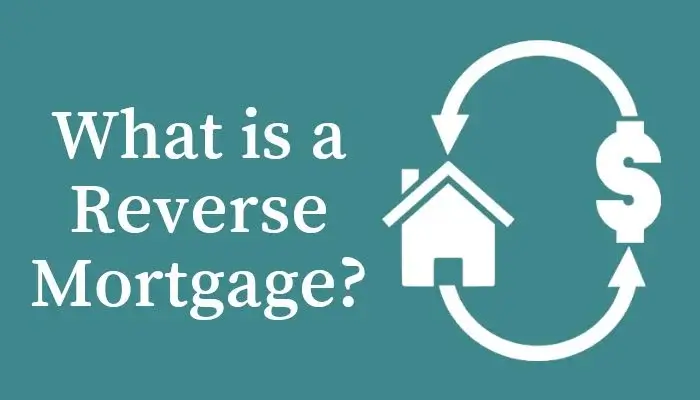
Here are the key points to understand about reverse mortgages:
- Eligibility: To be eligible for a reverse mortgage, the homeowner must be at least 62 years old, have substantial equity in their home, and reside in the property as their primary residence.
- Home Equity Conversion Mortgage (HECM): The most common type of reverse mortgage is the Home Equity Conversion Mortgage (HECM), which is insured by the Federal Housing Administration (FHA). Private lenders issue HECMs, but the government backs them.
- Loan Repayment: The main advantage of a reverse mortgage is that the borrower is not required to make monthly mortgage payments. Instead, the loan is typically repaid when the homeowner sells the home, moves out of the property, or passes away. In the event of the borrower’s death, the loan is usually repaid by the borrower’s heirs, who can either sell the home to settle the debt or refinance the loan.
- Loan Amount: The amount of money a homeowner can receive through a reverse mortgage depends on several factors, including the age of the youngest borrower, the home’s appraised value, current interest rates, and the specific program chosen.
- Loan Types: There are several ways to receive funds from a reverse mortgage, including a lump sum, a line of credit, monthly installments, or a combination of these methods. The borrower can choose the option that best suits their financial needs.
- Loan Repayment Conditions: As long as the borrower continues to meet the loan requirements, they can remain in their home without having to repay the loan. The loan becomes due when the borrower no longer meets the eligibility criteria (e.g., moves out of the home) or fails to fulfill the loan obligations (e.g., paying property taxes and homeowners insurance).
- Interest and Fees: While borrowers are not required to make monthly payments, interest accrues on the outstanding loan balance over time. The reverse mortgage loan balance increases with time. Additionally, borrowers are responsible for paying various fees, including origination fees, closing costs, and servicing fees.
- Counseling: Before obtaining a reverse mortgage, borrowers must attend a reverse mortgage counseling session with a HUD-approved counselor. This step ensures that the homeowner fully understands the implications of a reverse mortgage and the alternatives available.
It’s essential for potential borrowers to thoroughly understand the reverse mortgage term and obligations associated with a reverse mortgage before proceeding. If you’re considering a reverse mortgage, it’s wise to consult a financial advisor to assess whether it’s the reverse mortgage right option for your specific circumstances.
Eligibility Requirements for a Missouri Reverse Mortgage
A Missouri reverse mortgage is a financial product that allows homeowners to access equity in their home for the duration of their stay. In Missouri, as in other states, eligibility requirements must be met to qualify for a Missouri reverse mortgage. Here are the eligibility requirements for a Missouri reverse mortgage:
- Age: The homeowner must be at least 62 years old to qualify for a Missouri reverse mortgage.
- Property Type: The home must be the primary residence of the homeowner, and it must be a single-family home, a multi-family home (up to four units), a HUD-approved condominium, or a manufactured home that meets FHA standards.
- Counseling: Before applying for a Missouri reverse mortgage, the homeowner must undergo counseling with a HUD-approved counselor. This counseling ensures the homeowner understands the costs and risks of a Missouri reverse mortgage.
- Equity: The homeowner must have sufficient equity in the home to qualify for a Missouri reverse mortgage. This means that the amount owed on any existing mortgages or liens must be less than the home’s appraised value.
- Financial Requirements: A Missouri reverse mortgage doesn’t require a minimum credit score, but homeowners must prove they can pay property taxes, insurance, and other home-related expenses. Lenders will check the homeowner’s income, credit history and debt to ensure they meet these obligations.
It’s important to note that these eligibility requirements are for the federally-insured Home Equity Conversion Mortgage (HECM) program. Other Missouri Reverse Mortgage programs may have different eligibility requirements. Additionally, homeowners considering a Missouri reverse mortgage should consider the costs and risks of the product before deciding.
Types of Missouri Reverse Mortgage
Homeowners in Missouri have access to different types of reverse mortgages, each with unique features and requirements. The main types of Missouri Reverse Mortgage available in Missouri include:
- Home Equity Conversion Mortgage (HECM): This is the most common type of reverse mortgage backed by the Federal Housing Administration (FHA). It is available to homeowners aged 62 and above and allows them to access their home equity as a lump sum, line of credit or monthly payment.
- Single-Purpose Reverse Mortgage: Some local governments and nonprofits offer this type of reverse mortgage to help homeowners pay a certain expense, such as home repairs or property taxes. It may have lower costs than a HECM but may impose more restrictions on how funds can be used.
- Jumbo Reverse Mortgage: This non-FHA reverse mortgage is offered to homeowners with higher-value homes. It may have higher interest rates and fees than a HECM but provides access to larger residential equity. The jumbo reverse mortgage market has evolved and has been influenced by various factors. The amount you get from a jumbo reverse mortgage loan depends on your age and the value of your home loan based on the 2024 Loan to Value (LTV) table.
- Proprietary Reverse Mortgage: Some private lenders offer reverse mortgage products, which may have higher lines of credit and more flexible eligibility requirements than a HECM.
When considering a Missouri reverse mortgage, homeowners should carefully weigh the costs and reverse mortgage benefits of each type of loan and choose the one that best suits their needs. You should also consult with a HUD-approved housing and financial advisor to ensure you understand the risks and liabilities of a Missouri Reverse Mortgage.
Pros and Cons of Missouri Reverse Mortgage
Missouri reverse mortgages can provide homeowners aged 62 and older access to their home equity while still living in their homes. While reverse mortgages can be a useful financial tool for some homeowners, they also have risks and drawbacks. Here are some pros and cons of Missouri reverse mortgages to consider:
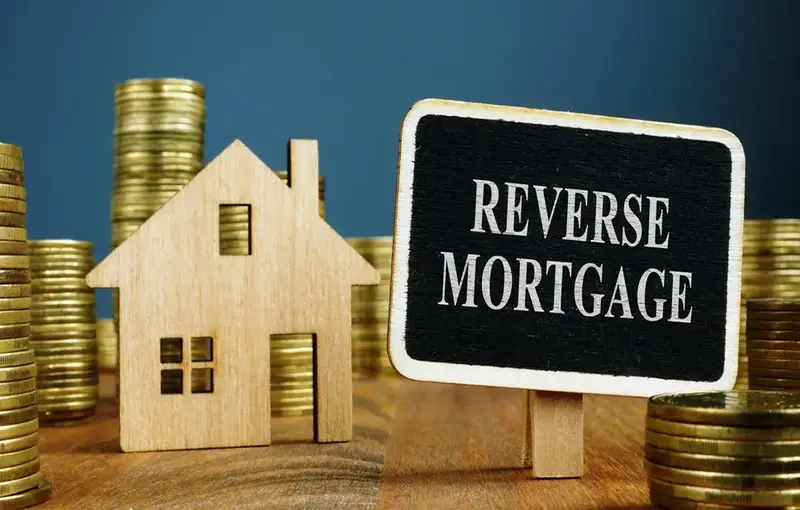
Pros of Missouri Reverse Mortgage:
- Access to Home Equity: Missouri reverse mortgages can give homeowners access to the equity in their homes without selling the property or making monthly reverse mortgage payment.
- Non-Recourse Loan: Missouri reverse mortgages are non-recourse loans, meaning that the lender cannot seize assets other than the home to repay the loan. This provides some protection to homeowners and their heirs.
- No Monthly Payments: Homeowners are not required to make monthly mortgage payments as they would with a traditional mortgage. However, they are still responsible for paying property taxes, insurance, and other home-related expenses. With a typical forward mortgage, borrowers take out a loan and repay it monthly.
- Flexibility: Homeowners can receive the loan proceeds as a lump sum, line of credit, or monthly payments, depending on their preferences and financial needs.
Cons of Missouri Reverse Mortgage:
- Risk of Foreclosure: If the homeowner does not meet their obligations under the loan, such as paying property taxes or insurance, the lender can foreclose on the property. This can result in the loss of the home and the homeowner’s equity.
- High Costs: Reverse mortgages can have higher costs than traditional mortgages, including origination fees, closing costs, and interest rates. These costs can increase over time and reduce the equity available to the homeowner or their heirs.
- Impact on Government Benefits: The loan proceeds from a Missouri reverse mortgage may impact eligibility for government benefits such as Medicaid and Supplemental Security Income (SSI).
- Reduced Equity: Since the home secures the loan, the equity available to the homeowner or their heirs will be reduced over time as interest accrues.
- Inheritance Considerations: If the homeowner passes away or sells the home, the loan must be repaid, which can reduce the inheritance left to heirs.
Stay informed and vigilant to protect yourself from reverse mortgage scams. Homeowners considering a Missouri reverse mortgage should carefully weigh the pros and cons and consult a financial advisor and a HUD-approved housing counsellor before deciding.
Navigating the Application Process for a Missouri Reverse Mortgage
If you’re a homeowner in Missouri who is interested in applying for a Missouri reverse mortgage, here are the steps to take:
- Counselling: Consult a HUD-licensed housing advisor before applying for a Missouri reverse mortgage. Advisors provide information on the costs and risks of loans and alternative loan options. Alternatives include changing the reverde mortgage payment terms or obtaining a mortgage loan or HELOC.
- Meet Eligibility Requirements: You must be at least 62 years old and own your home outright or have a low mortgage balance that can be paid off with the reverse mortgage proceeds from the Missouri reverse mortgage.
- Appraisal: An appraisal will be conducted to determine the value of your home.
- Lender Selection: Choose a lender and complete an application. The lender will review your financial information and determine your eligibility for a Missouri reverse mortgage.
- Loan Processing: Once approved, the lender will process your loan and finalize the terms and conditions.
- Disbursement: The loan proceeds will be disbursed according to your chosen payment plan.
- Closing: You will be required to attend a closing, where you will sign the loan documents and receive the loan proceeds.
It’s important to remember that Missouri reverse mortgage can incur significant costs and liabilities, including interest, construction and closing costs, and ongoing property tax and insurance payments. Before applying for a Missouri reverse mortgage, homeowners should carefully consider their finances and goals and consult with a financial advisor and a HUD-approved residential advisor to fully understand the risks and benefits of this type of loan.
Understanding Repayment Options for Missouri Reverse Mortgage
A Missouri reverse mortgage is typically repaid when the homeowner sells the home, passes away, or no longer uses the property as their primary residence.

Here are the different options for repaying a Missouri reverse mortgage:
- Sale of the Home: If the homeowner decides to sell the home, the loan must be repaid from the sale proceeds. If the home’s sale price is higher than the loan balance, the homeowner or their heirs will receive the remaining equity.
- Refinancing: The homeowner can refinance the Missouri reverse mortgage, paying off the existing loan and replacing it with a new one.
- Deed in Lieu of Foreclosure: If the homeowner cannot sell the home or pay off the loan, they can choose to transfer ownership of the property to the lender instead of foreclosure.
- Foreclosure: If the homeowner does not meet their obligations under the loan, such as paying property taxes or insurance, the lender can foreclose on the property. However, since reverse mortgages are non-recourse loans, the lender cannot seize assets other than the home to repay the loan.
- Personal Funds: The homeowner or their heirs can use personal funds to repay the loan. This is typically done if the home has sentimental value or the homeowner wants to leave the property to their heirs.
It’s important to note that Missouri reverse mortgage repayments can have significant financial implications for homeowners and their heirs. If the debt balance exceeds the house’s value, the landlord or his heirs may have to pay the difference. Homeowners considering a Missouri reverse mortgage should carefully consider their reverse mortgage finance and goals and consult a financial advisor or HUD-licensed real estate advisor to fully understand the risks and benefits of this type of loan.
Missouri Reverse Mortgage Loan Disbursement Options
Reverse mortgages offer different disbursement options for borrowers to access their home equity. These options provide flexibility in how borrowers receive the loan proceeds. The main disbursement options for Missouri Reverse Mortgage are as follows:
- Lump Sum: Borrowers can receive the entire loan amount in a single, upfront lump sum payment. This option can be useful for borrowers with specific financial needs, such as paying off existing mortgages, medical expenses, or home renovations.
- Monthly Payments: Borrowers can opt for a stream of fixed monthly payments for a specific duration or as long as they live in the home. This is similar to receiving a regular income from the reverse mortgage. The advantage of this option is that it can provide a steady source of income for retirees or those with limited cash flow.
- Combination of Options: Borrowers can also choose a combination of the above reverse mortgage options. For example, they may take a portion of the loan amount as a lump sum and set up a line of credit with the remaining funds for future use.
- Line of Credit: A line of credit option allows borrowers to access funds from their reverse mortgage as needed, up to the maximum allowed reverse mortgage limits. Interest is accrued only on the borrowed amount. This option can be beneficial for borrowers who want to have a financial safety net or for those who have unpredictable expenses. You’ve likely spent years paying your regular mortgage and building up this value. Like regular mortgages, reverse mortgages come with closing costs and upfront fees.
The disbursement options for reverse mortgages can be tailored to meet the borrower’s specific financial goals and circumstances. It’s crucial for borrowers to carefully consider their needs and consult with a qualified reverse mortgage counselor or financial advisor to determine the most suitable disbursement option for their situation.
Remember that the availability of specific disbursement options and the terms of reverse mortgages may vary based on the lender and the type of reverse mortgage program chosen. Additionally, some fees may be associated with certain disbursement options, so borrowers should review the loan terms and costs carefully before proceeding.
Missouri Reverse Mortgage Statistics
Here’s a table summarizing recent trends and data on reverse mortgages in Missouri:
| Year | Number of Reverse Mortgages Issued | Average Amount ($) | Counties with Most Activity |
| 2021 | 642 | 130,000 | St. Louis, Jackson |
| 2022 | 689 | 135,000 | St. Charles, Greene |
The reverse mortgage landscape in Missouri reflects a growing interest among seniors in utilizing their home equity to support their financial needs during retirement. With a slight increase in the number of reverse mortgages issued from 2021 to 2022, it’s clear that more homeowners are considering this option as a viable means to enhance their financial flexibility. Engaging with knowledgeable advisors and exploring all available options are crucial steps for Missouri residents looking to make the most informed and beneficial choices regarding their financial futures.
Comparison with Home Equity Loans and HELOCs
A Missouri reverse mortgage, home equity loan, and home equity line of credit (HELOC) are all financial products that allow homeowners to tap into their home’s equity. Still, they differ significantly in how they reverse mortgage work and impact the borrower. Let’s compare the three options, specifically in the context of Missouri:
Reverse Mortgage
- Eligibility: Available to homeowners aged 62 or older with significant home equity.
- Loan Repayment: No monthly payments are required. The loan becomes due when the last borrower permanently moves out, sells the home, or passes away. The loan is usually repaid by selling the home, and any remaining equity after the loan is paid goes to the borrower or their heirs.
- Disbursement Options: Borrowers can choose between a lump sum, monthly payments, a line of credit, or a combination of these options.
- Benefit: Senior homeowners can access their home equity without making monthly payments. It can be particularly helpful for retirees seeking additional retirement income or covering large expenses.
Home Equity Loan
- Eligibility: Available to homeowners who have home equity, regardless of age.
- Loan Repayment: Monthly payments are required to repay the loan, typically over a fixed term.
- Disbursement Options: Generally, borrowers receive the loan amount as a lump sum.
- Benefit: It allows homeowners to borrow a lump sum at a fixed interest rate, making it suitable for one-time expenses, such as home renovations or debt consolidation.
Home Equity Line of Credit (HELOC)
- Eligibility: Available to homeowners with home equity, regardless of age.
- Loan Repayment: Borrowers can draw funds from the credit line during the draw period, usually around ten years. After the draw period ends, a repayment period begins, during which the borrower makes monthly payments to repay the outstanding balance.
- Disbursement Options: Borrowers can draw funds up to the approved credit limit as needed during the draw period.
- Benefit: Provides a revolving line of credit that allows homeowners to access funds as needed, making it suitable for ongoing or variable expenses.
When comparing these options, the key factors include the borrower’s age, financial goals, income, and the desired repayment structure. Reverse mortgages are designed for seniors 62 and older and offer unique advantages for retirees seeking to supplement their income or eliminate monthly mortgage payments. On the other hand, home equity loans and HELOCs are available to homeowners of any age and are better suited for one-time expenses or variable borrowing needs.
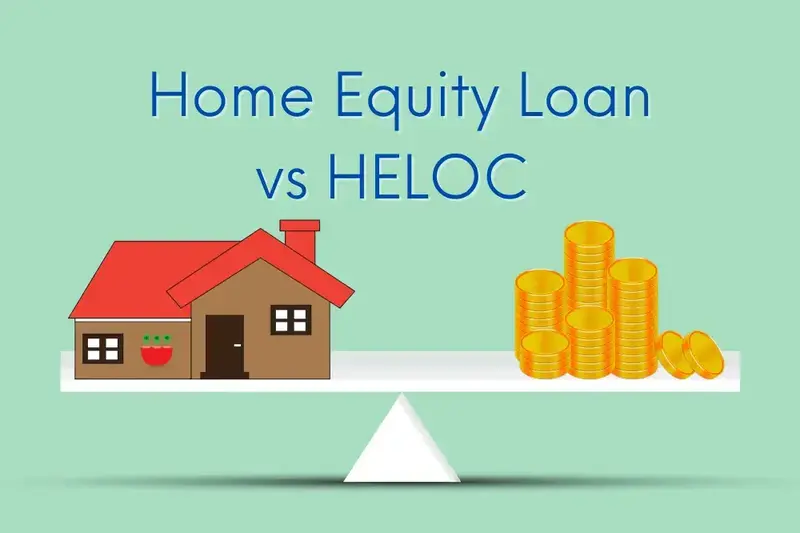
It’s important for homeowners in Missouri to carefully assess their financial situation and consult with financial advisors or lenders to determine which option aligns best with their needs and goals. Additionally, loan terms, interest rates, and eligibility requirements may vary among lenders, so shopping around and comparing reverse mortgage offers is crucial before deciding.
Finding the Right Missouri Reverse Mortgage Provider
Choosing the right reverse mortgage provider in Missouri involves several key considerations to ensure you find a reputable and reliable company that meets your needs. Ensure the lender you choose is licensed to operate in your state and approved by the appropriate agencies, such as the National Reverse Mortgage Lenders Association (NRMLA). Here are some tips to help you find the right Missouri reverse mortgage provider:
- Check Licensing and Credentials: Ensure that the reverse mortgage providers you consider are licensed to operate in Missouri. You can verify this through the Missouri Division of Finance or the National Mortgage Licensing System (NMLS).
- Read Reviews and Testimonials: Look for reviews and testimonials from other customers in Missouri to gauge the provider’s reputation and service quality. Websites like the Better Business Bureau (BBB) can offer insights into a company’s customer satisfaction and any complaints filed against it.
- Compare Terms and Conditions: Not all reverse mortgage offers are the same. Compare several providers’ interest rates, closing costs, loan limits, and other terms to understand the cost implications and find the most favorable deal.
- Consult with a HUD-Approved Counselor: The U.S. Department of Housing and Urban Development (HUD) requires all potential reverse mortgage borrowers to consult an approved counselor. This counseling session will help you understand the risks and benefits of a reverse mortgage.
- Customer Support: Customer service is crucial, especially for complex products like reverse mortgages. Ensure the provider you choose offers robust support, ideally with easy access to a natural person who can answer your reverse mortgage questions and address your concerns.
- Check for Additional Services: Some providers offer financial planning advice or long-term loan management services. Consider whether these additional services could benefit you.
By carefully evaluating these aspects, you’ll be better equipped to find a reverse mortgage provider in Missouri that meets your financial requirements and provides a high level of service and support.
Top Companies Missouri Reverse Mortgage
In Missouri, homeowners aged 62 and older have access to a range of options to unlock the equity in their homes, and one popular choice is a reverse mortgage. Reverse mortgages provide a unique opportunity for seniors to convert a portion of their home’s equity into tax-free cash without selling the property or making monthly mortgage payments. As an increasingly popular financial solution, several reputable companies in Missouri specialize in offering reverse mortgages.
Here is a list of the best Missouri reverse mortgage companies:
- Fairway Reverse Mortgage
- Liberty Home Equity
- AmeriSave Loans
- American Advisors Group
Let’s review the best Missouri reverse mortgage companies in order:
Fairway Reverse Mortgage
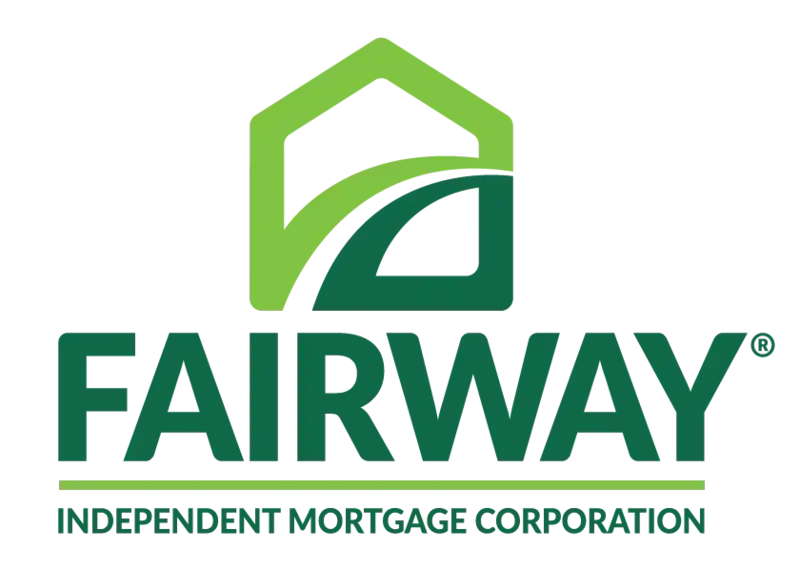
Fairway Reverse Mortgage is a reputable industry lender specializing in providing reverse mortgage solution to seniors seeking to enhance their retirement finances. Fairway Reverse Mortgages are typically insured by the Federal Housing Administration (FHA), offering an extra layer of protection for borrowers. FHA insurance ensures that you will continue to receive your payments even if the lender goes out of business, easing any concerns about the stability of the reverse mortgage program.
A Fairway Reverse Mortgage can be an invaluable financial tool for seniors looking to bolster their retirement income, cover medical expenses, pay off existing mortgages, or enhance their quality of life in retirement. However, it’s essential to consider this decision and explore all available options carefully. Speaking with a reputable reverse mortgage counselor and a financial advisor can help determine if a reverse mortgage is the right choice for your needs and circumstances.
Missouri Reverse Mortgage with Fairway Reverse Mortgage
Fairway Reverse Mortgage was a division of Fairway Independent Mortgage Corporation, specializing in reverse mortgages, also known as Home Equity Conversion Mortgages (HECMs). HECMs are a federally insured reverse mortgage program allowing homeowners 62 years of age or older to convert a portion of their home equity into cash.
Missouri reverse mortgage services, including those offered by Fairway Reverse Mortgage, typically provide eligible homeowners with options to receive the loan proceeds in various ways, such as a lump sum, a line of credit, fixed monthly payments, or a combination of these methods. The loan becomes due and payable when the last borrower no longer occupies the home as their primary residence, usually when they pass away or move out permanently.
To learn more about Fairway Reverse Mortgage, you can review this article: Fairway Reverse Mortgage
From this link you can visit Fairway Reverse Mortgage‘s website: https://fairwayreverse.com/
Fairway Reverse Mortgage Phone Number: 844-940-4326
Liberty Home Equity

Liberty Home Equity is a company that offers reverse mortgage loans to seniors who own their homes and want to tap into their home equity without having to sell or move. Unlike traditional mortgages, the borrower does not have to make monthly payments, but rather the loan is repaid when the homeowner sells the property, moves out, or passes away.
Liberty Home Equity is one of the largest reverse mortgage lenders in the United States and has been in business since 2003. Liberty Home Equity ratings are pretty high.
Before considering a reverse mortgage, seniors need to understand the reverse mortgage pros and cons of this type of loan and the costs and fees involved. Seniors are encouraged to speak with a financial advisor or advisor to determine if a reverse mortgage is the best option for their finances.
Missouri Reverse Mortgage with Liberty Home Equity
Liberty Home Equity is a company that offers reverse mortgages in Missouri and across the United States. The loan is repaid when the homeowner sells the property, moves out, or passes away. Unlike traditional mortgages, the borrower does not have to make monthly payments. Instead, the loan balance increases over time as interest accrues on the loan.
One potential problem that can arise with a Missouri reverse mortgage is title issues. When a senior takes a reverse mortgage, the lender places a lien on the property as collateral for the loan. If the property has title issues, such as unpaid taxes or other liens, it can affect the lender’s ability to sell the property and get the loan back if the borrower dies. For seniors considering a reverse mortgage in Missouri, it is important to reverse mortgages work with a reputable lender and a qualified real estate attorney to secure the property and protect their heirs.
Overall, a reverse mortgage can be a useful financial tool for Missouri seniors who want to leverage their home equity without having to sell or move. However, it is important to understand the terms of the loan and the costs and fees involved. Older people should also consider alternative options, such as downsizing or taking out a mortgage, before deciding to take out a reverse mortgage.
To learn more about Liberty Home Equity, you can review this article: Liberty Home Equity
From this link you can visit Liberty Home Equity‘s website: https://libertyreversemortgage.com/
Liberty Home Equity Phone Number: 866.751.2606
AmeriSave Loans

Established in 2002, AmeriSave Loans‘ primary mission is to simplify the mortgage process, making homeownership more accessible and achievable. From the outset, the company set its sights on becoming a trusted partner for homebuyers, promising transparency, efficiency, and competitive rates.
AmeriSave Loans‘ rise to prominence in the mortgage industry can be attributed to its unwavering commitment to its customers, innovative traditional mortgage approach to technology, and adherence to strong ethical values. By providing a diverse array of mortgage products and services, AmeriSave continues to empower the dreams of homeownership for countless individuals and families across the United States. If you’re considering purchasing a home or refinancing your existing mortgage, AmeriSave Loans stands ready to help you embark on your homeownership journey with confidence and peace of mind.
Missouri Reverse Mortgage with AmeriSave Loans
AmeriSave Loans offered reverse mortgages in Missouri, among other states. A reverse mortgage, also known as a Home Equity Conversion Mortgage (HECM), is a financial product that allows eligible homeowners aged 62 and older to convert a portion of their home equity into tax-free funds, which can be received in various ways, such as a lump sum, monthly payments, or a line of credit.
With a Missouri reverse mortgage, borrowers are not required to make monthly payments. Instead, the loan is typically repaid when the last borrower permanently leaves the home, sells the property, or passes away. The loan balance becomes due and payable at that time, usually settled by selling the home.
Suppose you or someone you know is considering a reverse mortgage. In that case, it is highly advisable to seek independent financial advice and thoroughly understand the implications and responsibilities of this type of loan before proceeding.
To learn more about AmeriSave Loans, you can review this article: AmeriSave Loans
From this link you can visit AmeriSave Loans‘ website: https://www.amerisave.com/
AmeriSave Loans Phone Number: 866.514.7283
American Advisors Group
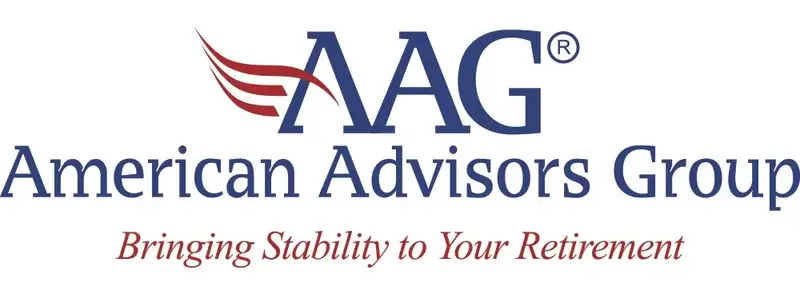
American Advisors Group is a reverse mortgage lender that offers Home Equity Conversion Mortgages (HECMs) and other reverse mortgage products to eligible senior homeowners. The company is headquartered in Orange, California and is licensed to do business in all 50 states, including Hawaii.
AAG American Advisors Group has been in business since 2004 and is one of the largest reverse mortgage lenders in the United States. The company is known for its famous spokesperson, Tom Selleck, who has appeared in television commercials promoting AAG’s reverse mortgage loans.
AAG aims to help seniors use the equity in their homes to improve their financial security and quality of life. The company offers a range of resources and educational materials to help seniors understand the benefits and potential disadvantages of a reverse mortgage and make informed decisions about whether a reverse mortgage is right for their individual needs and goals.
Missouri Reverse Mortgage with American Advisors Group (AAG)
American Advisors Group (AAG) Missouri Reverse Mortgage is a reverse mortgage loan offered by the American Advisors Group (AAG) to eligible homeowners in Missouri. A reverse mortgage is a loan that allows homeowners over the age of 62 to pay off a portion of their home equity. The loan is guaranteed to the borrower’s home and can only be repaid once the borrower moves, sells the house, or dies.
AAG is a leading provider of Home Equity Conversion Mortgages (HECMs), the only reverse mortgage loans insured by the Federal Housing Administration (FHA). The AAG Missouri Reverse Mortgage program, allows eligible borrowers to access their home equity and use the funds for any purpose, such as paying off debt, covering healthcare expenses, or improving their quality of life in retirement.
To qualify for an AAG Missouri Reverse Mortgage, a borrower must be at least 62 years old, own the entire home, have a mortgage loan repayable with a reverse mortgage loan, and own the home as their principal residence. Available loan amounts depend on the borrower’s age, the home’s value, and the current interest rate. AAG also offers many options for payment of loan proceeds, such as lump sum, line of credit or monthly payments.
To learn more about American Advisors Group, you can review this article: American Advisors Group
From this link you can visit American Advisors Group‘s website: https://www.aag.com/
American Advisors Group Phone Number: (800) 224-9121
Conclusion
A Missouri reverse mortgage is useful for Missouri homeowners looking to access home equity and increase cash flow. However, it’s important to carefully weigh the pros and cons and consider your finances and goals before deciding. Missouri homeowners considering a reverse mortgage should research and compare various options, consult financial and HUD-approved residential advisors, and fully understand the costs and risks involved. A Missouri reverse mortgage can be a valuable source of finance for homeowners entering retirement and looking to cover their costs and improve their quality of life. However, it is important that you carefully consider your options and make an informed decision that is in line with your interests and financial goals.
Missouri Reverse Mortgage FAQ
When considering a Missouri reverse mortgage, it’s important to have a clear understanding of what it entails and how it might impact your financial situation. A Missouri reverse mortgage allows homeowners aged 62 or older to convert part of the equity in their home into cash, which can provide a financial cushion during retirement. This section aims to answer frequently asked questions and provide crucial insights to Missouri residents considering this financial option, helping you make an informed decision tailored to your circumstances.
What are the typical closing costs for a reverse mortgage?
The upfront costs of a reverse mortgage typically include origination fees, mortgage insurance premiums (MIP), appraisal fees, closing costs, and counseling fees.
Can I get a reverse mortgage on a rental property?
No, you cannot get a reverse mortgage on a rental property. Reverse mortgages are designed for primary residences, meaning your home is your primary residence. To be eligible for a reverse mortgage, you must certify that the property securing the loan is your primary residence and that you intend to continue living in the home.
How much equity is required for a reverse mortgage?
The amount of equity required for a reverse mortgage depends on several factors, including the borrower’s age, the appraised value of the home, and current interest rates. Generally, the more equity you have in your home, the more you can borrow with a reverse mortgage. Most Home Equity Conversion Mortgages (HECMs), the most common type of reverse mortgage insured by the Federal Housing Administration (FHA), have no specific minimum equity requirement. However, the older you are and the more equity you have, the more significant the loan amount you may be eligible for.
How to use a reverse mortgage to purchase a home?
To use a reverse mortgage to purchase a home, you must be aged 62 or older. Make a down payment on the new house (typically 30%-50% of the purchase price). Apply for a Home Equity Conversion Mortgage for Purchase (HECM for Purchase) loan with an approved lender. After approval and closing, take ownership of the new home, live in it as your primary residence, and no monthly mortgage payments are required. The loan becomes due when you sell the house, move out permanently, or pass away.
Do you need a lawyer for a reverse mortgage?
No, you are not required to have a lawyer for a reverse mortgage, but it can be beneficial to consult with one to understand the legal implications and protect your interests fully. A reverse mortgage is a significant financial decision, and having legal guidance can help you make informed choices and protect your interests. An attorney can review the loan documents, explain the terms and conditions, and advise you on how a reverse mortgage might impact your estate planning and inheritance for your heirs. They can also help you understand any potential risks, such as the risk of foreclosure if you fail to meet certain obligations, like paying property taxes and homeowners insurance.
